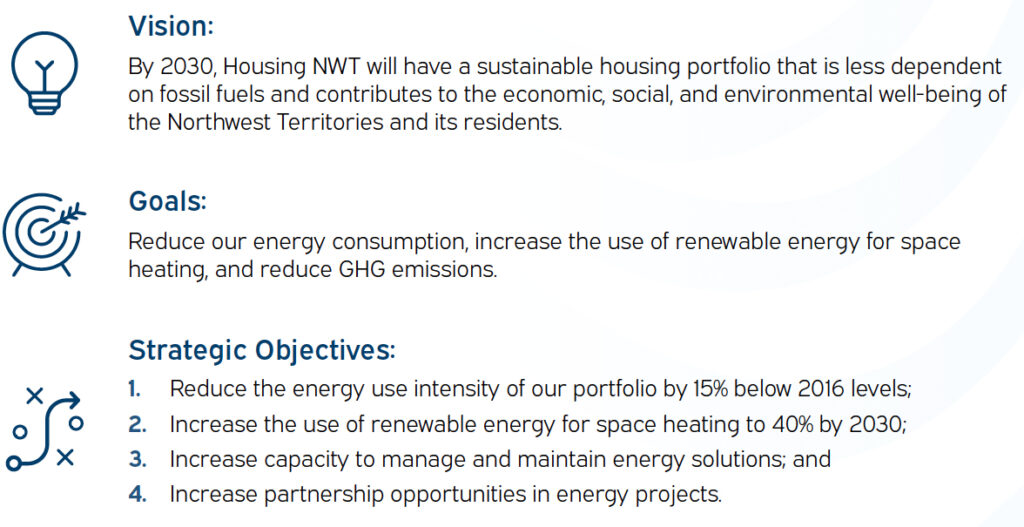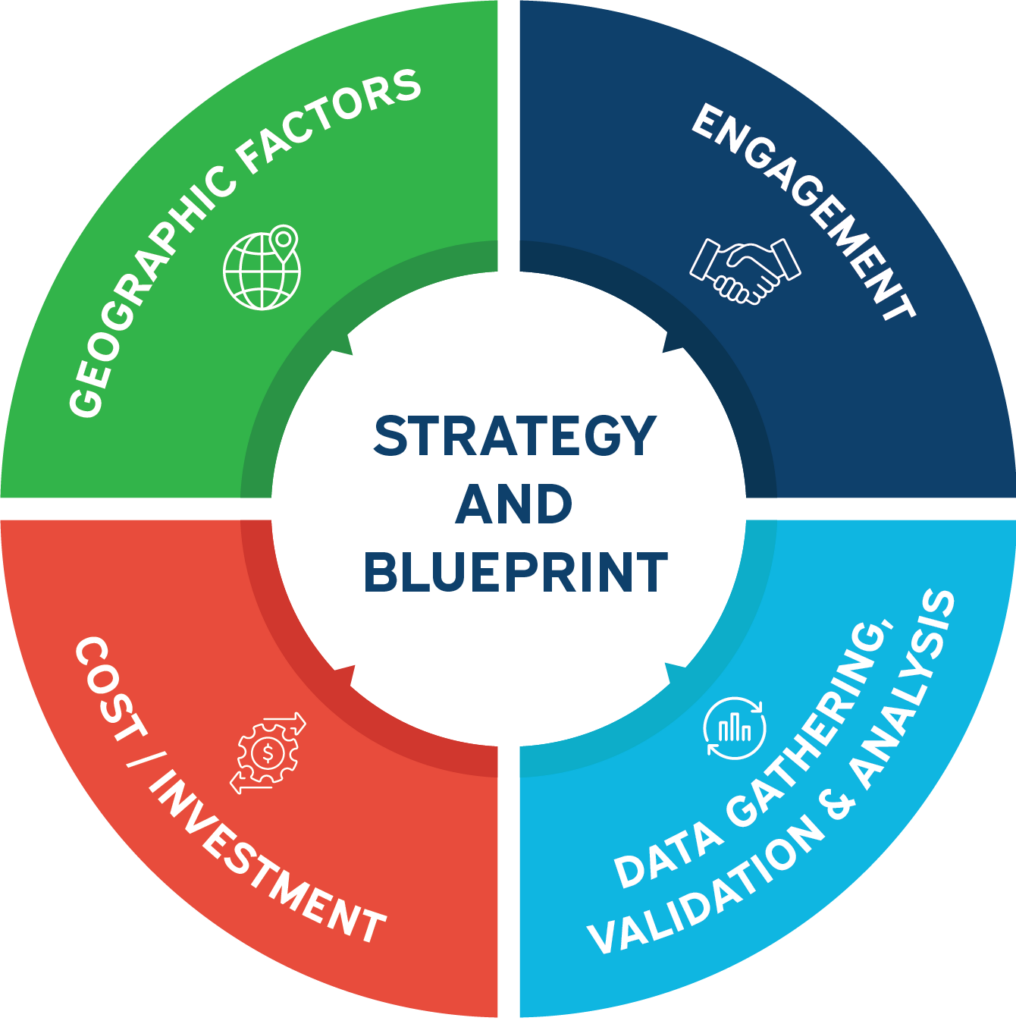Projects
Energy Management Strategy – NT
Dillon was retained to develop an Energy Management Strategy and 3-year action plan for Housing Northwest Territories’ (NWT) portfolio of social housing across the Northwest Territories.
In spring of 2022, Housing NWT initiated a renewed focus on achieving a more sustainable future for housing delivery in the NWT that is less dependent on the use of fossil fuels. To achieve this, two documents were developed: The 2030 Energy Management Strategy (Strategy), and its companion document the Energy Blueprint (Blueprint).
The Strategy sets out Housing NWT’s broader Vision, Goals, and four Strategic Objectives, while the Blueprint details the planned actions and initiatives for the next three years to work towards the Strategy’s 2030 targeted outcomes.

How was the Strategy and Action Plan developed?
Housing NWT’s portfolio of over 2,700 housing units spans five regions and 32 communities in the NWT. The development of the Strategy and Blueprint built upon previous work completed by the GNWT and was informed by geographic factors, an in-depth assessment of their entire housing portfolio’s energy consumption and emissions, a series of engagements, and a technical assessment of potential actions and initiatives and their potential costs. This process allowed Housing NWT to align with the energy priorities and technical capabilities of their communities, partners and stakeholders, while focusing their actions and initiatives to deliver the highest impact at the best value.

Comprehensive Energy Analysis: A technical analysis was completed to inform the Strategy and Blueprint. It determined the baseline (2005), current, and projected energy consumption and greenhouse gas emissions of their portfolio. It also identified, analyzed, and evaluated energy conservation and renewable measures across Housing NWT’s portfolio of 2600 assets in 33 NWT communities. The detailed analysis and evaluation of energy conservation measures include energy consumption reductions and expected return on investment.
Cost Estimate: Class D and Class C cost estimates were prepared to inform the development and selection of energy conservation and renewable energy measures to be recommended in the Blueprint.
Engagement Program: Engagement was developed to meet the project objective. It included site visits, interviews, workshops, presentations, documentation to the standing committee and an online public engagement campaign.
Project Details
Project Partner: Government of Northwest Territories
Business Unit: Energy Transition
Service Offering: Sustainable Infrastructure